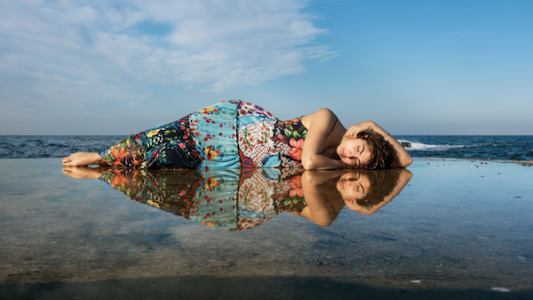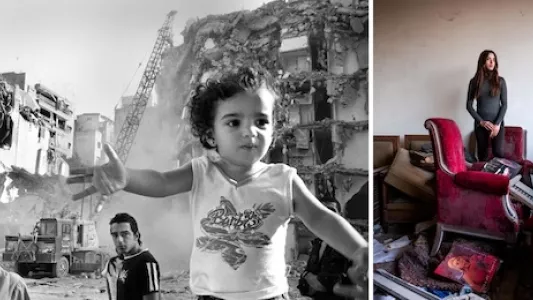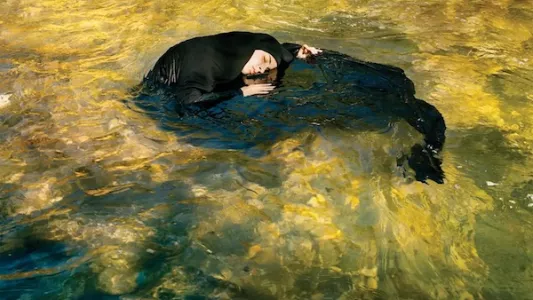Fifty years after the start of Lebanon's civil war, photographer Rania Matar created a deeply personal and poetic project titled "50 Year Later - Where Do I Go?". It is not just a reflection on war, displacement, or the country's ongoing instability. It is also a tribute to the strength, beauty, and resilience of Lebanese women, captured in intimate and often breathtaking portraits.
The project, which was presented at Beirut's Galerie Tanit, began with a moment of quiet discovery. While photographing a young woman named Perla near an abandoned silk factory, Matar noticed graffiti painted on a wall. It read: "لوين روح؟" or "Where do I go?" The question struck her immediately. It captured the emotional weight carried by so many in Lebanon, especially young women who are constantly facing the uncertainty of whether to stay or leave.

Matar understands that feeling well. She left Lebanon during the civil war in 1984 when she was twenty years old. Now based in the United States, she continues to return and work in the country. In many of the women she photographs, she sees a version of her younger self. They are standing at the same crossroads, wondering if they should remain in a place they love or seek a future somewhere else.
But this project is not about despair. The portraits are vibrant and full of presence. Her subjects are often barefoot, climbing trees, standing in muddy fields, balancing on rooftops, or floating fully clothed in water. Each photograph captures a moment of strength, movement, and individuality. Matar describes her work as a collaboration. She gives the women space to move, to interact with their environment, and to help shape the final image. The result is a series of portraits that feel natural, bold, and emotionally honest.

One image in particular tells a striking story. In 2006, during the Israeli bombardment of Lebanon, Matar photographed a young girl holding a Barbie doll. In 2024, she met the same girl again, now a young woman named Lynn, standing in the remains of her aunt's apartment in Beirut. The connection between those two photographs is powerful. It reminds us that the effects of conflict do not simply fade away. They continue to shape lives for years to come.

For Matar, this work is a love letter to the women of Lebanon. These photographs are not only about survival. They are about finding grace, identity, and dignity in the face of chaos. Rather than focusing on destruction, she highlights what remains. Resilience, creativity, and humanity.
This project does not try to answer the question, "Where do I go?" Instead, it honors those who live with that question every day. It holds space for the strength they carry as they search for meaning, safety, and a sense of home. Many of the images can be viewed online through Matar's official website and recent features in The Guardian. Read more about Rania's project here.




